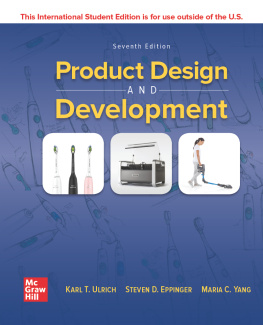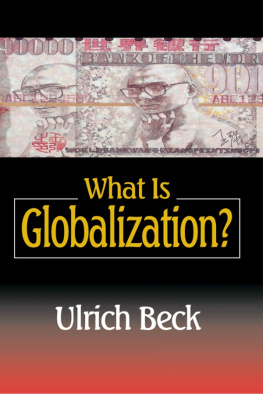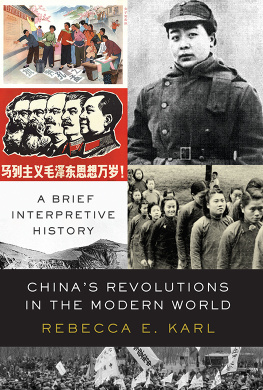Lele Sang and Karl Ulrich - Winning in China
Here you can read online Lele Sang and Karl Ulrich - Winning in China full text of the book (entire story) in english for free. Download pdf and epub, get meaning, cover and reviews about this ebook. year: 2020, publisher: Wharton School Press, genre: Romance novel. Description of the work, (preface) as well as reviews are available. Best literature library LitArk.com created for fans of good reading and offers a wide selection of genres:
Romance novel
Science fiction
Adventure
Detective
Science
History
Home and family
Prose
Art
Politics
Computer
Non-fiction
Religion
Business
Children
Humor
Choose a favorite category and find really read worthwhile books. Enjoy immersion in the world of imagination, feel the emotions of the characters or learn something new for yourself, make an fascinating discovery.

- Book:Winning in China
- Author:
- Publisher:Wharton School Press
- Genre:
- Year:2020
- Rating:3 / 5
- Favourites:Add to favourites
- Your mark:
- 60
- 1
- 2
- 3
- 4
- 5
Winning in China: summary, description and annotation
We offer to read an annotation, description, summary or preface (depends on what the author of the book "Winning in China" wrote himself). If you haven't found the necessary information about the book — write in the comments, we will try to find it.
Winning in China — read online for free the complete book (whole text) full work
Below is the text of the book, divided by pages. System saving the place of the last page read, allows you to conveniently read the book "Winning in China" online for free, without having to search again every time where you left off. Put a bookmark, and you can go to the page where you finished reading at any time.
Font size:
Interval:
Bookmark:
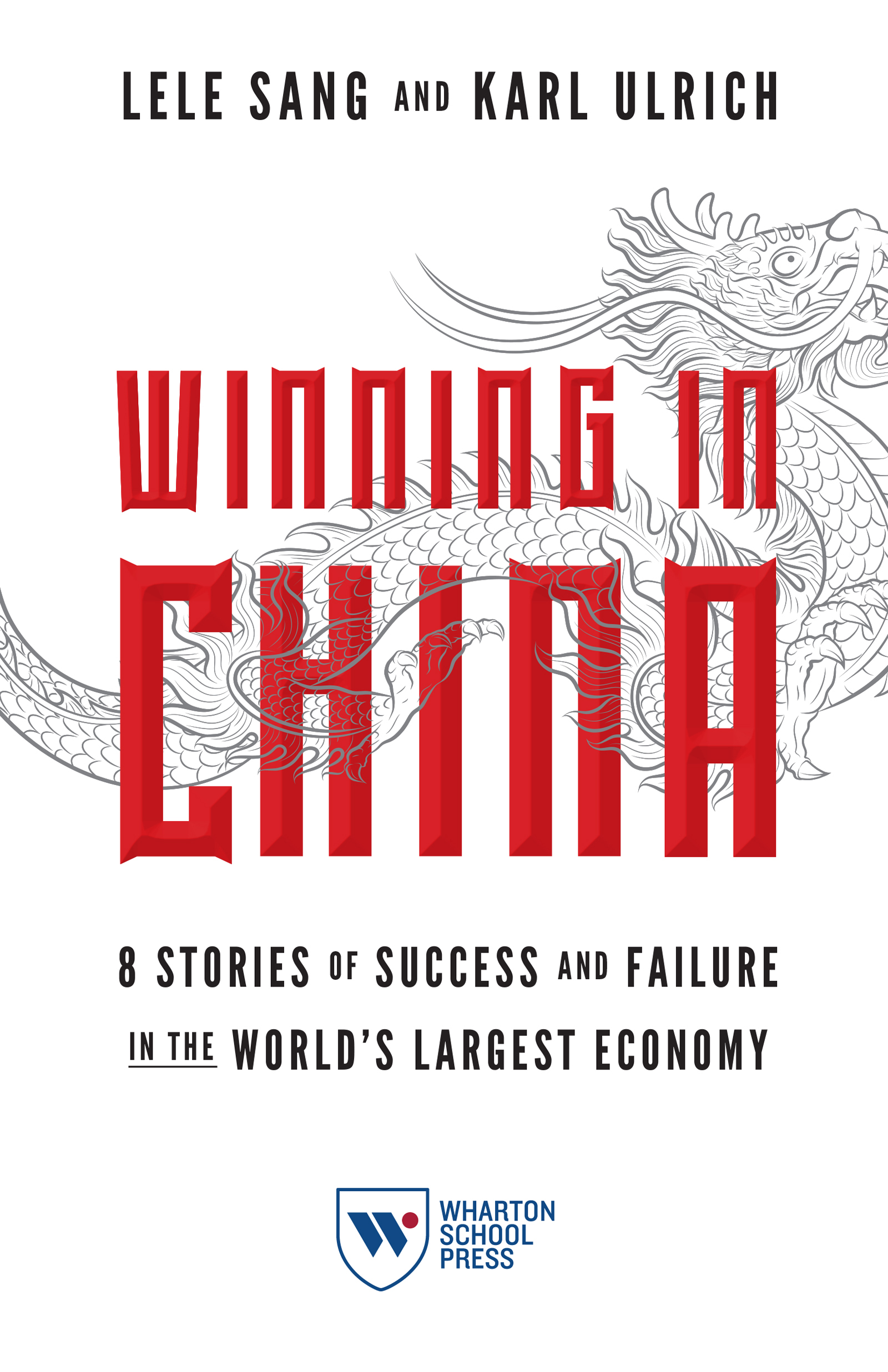
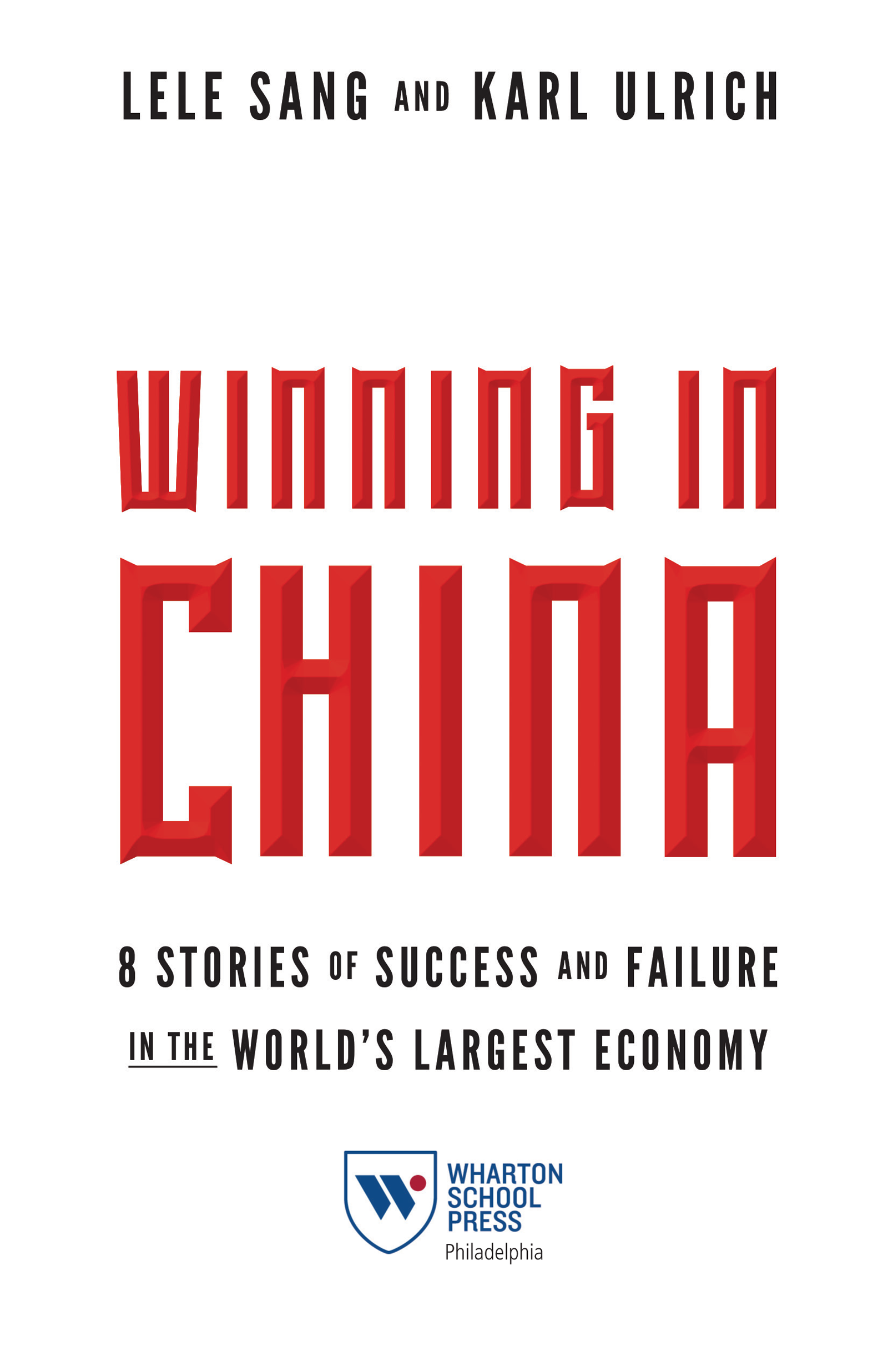
2021 by Lele Sang and Karl Ulrich
Published by Wharton School Press
The Wharton School
University of Pennsylvania
3620 Locust Walk
300 Steinberg Hall-Dietrich Hall
Philadelphia, PA 19104
Email:
Website: wsp.wharton.upenn.edu
All rights reserved. No part of this book may be reproduced, in any form or by any means, without written permission of the publisher. Company and product names mentioned herein are the trademarks or registered trademarks of their respective owners.
Ebook ISBN: 978-1-61363-107-2
Paperback ISBN: 978-1-61363-108-9
If Amazon Cant Succeed, Can Anyone?
When Amazon CEO Jeff Bezos visited China in 2007, three years after his company entered the market, Amazon was already one of the two leading players in Chinese ecommerce, with 12% market sharenot far behind Dangdangs 18%. Bezos expected that one day soon China would be a double-digit percentage of Amazons sales.
If Amazon cant win in China, can anyone?
The overarching theme of this book is winning in China, the worlds largest economy. By 2025, China is likely to be the worlds largest economy by any measure. In roughly 40 years, a brief interval in most economies, China vaulted from productive anemia to economic might.
Any firm considering entering China is motivated primarily by one factor: the demand for goods and services from about 1.4 billion people. A foreign firm hopes to profit either from directly slaking that demand or, in the case of business-to-business (B2B) companies, from serving other companies that eventually touch consumers in places as diverse and far-flung as Beijing, the countrys capital, and Xian, once the Chinese terminus of the storied Silk Road.
Entry is only a first step: For profits to be realized, the company must possess and maintain resources that give it a competitive advantage. We call these resources alpha assets, and they include proprietary technologies, distinctive capabilities, recognized brands, and lower costs (chapter 1). Success elsewhere doesnt guarantee that a company has these assets in China, as the country presents beguiling different challenges than other countries.
In this book, we answer four questions:
- Which factors explain the success or failure of foreign companies entering China?
- What challenges and pitfalls can a company entering China expect to encounter?
- How can a prospective entrant realistically assess its chances?
- Which managerial decisions are critical, and which approaches are most effective?
The original idea was sparked by Leles disappointing experience with LinkedIn after she returned to China from the United States. She had been an avid LinkedIn user in America, using it regularly for news, career opportunities, and, most importantly, networking. She would reach out to school alumni, people she had met, or strangers whose profiles piqued her curiosity to connect with them and sometimes become friends or collaborators.
Yet that experience hadnt been re-created in China. Few Chinese professionals on LinkedIn showed interest in her attempts at networking. She tried to reconnect to a former colleague with whom she had lost contact and got his response a full year later. His explanation: Im happy with my job. I dont normally go on LinkedIn. They then connected on WeChat, Chinas dominant social media app, and never communicated via LinkedIn again.
A year before Leles return in 2014, LinkedIn officially expanded into China. As in each of its markets, the company positioned itself as the professional networking platform and pitched this idea hard. Yet seeing the lack of interest among her fellow Chinese in networking through LinkedIn, she doubted whether the firm was on the right path. (LinkedIn is featured in chapter 5.)
LinkedIn was not the only foreign company that concerned Lele, a former journalist who had reported on multinational corporations in China. There were others, including the company she worked for. She often found herself bogged down in unnecessary late-night conference calls with her US colleagues, being asked to implement strategies that didnt fit China, waiting for each tiny action to be approved by headquarters, and hearing customers complain about how slow her company was and how fast their Chinese rivals could be.
These encounters, along with seemingly constant news about foreign companies challenges in China, inspired Lele to find out why foreign companies struggled so much. After she left a corporate job, she decided to write a book about multinationals failures in China.
Then she met Karl, who had spent years researching innovation in China as a professor at the Wharton School of the University of Pennsylvania. Karl was aware of the failures, yet also saw a diverse set of foreign companies that had become successful in China. They decided to collaborate, attempting to paint a complete picture of both failures and successes. Lele is Chinese and Karl is American, but each has spent a significant amount of time in both countries, and they share an enthusiasm for a more interconnected global economy. They wrote this book with the goal of learning from the experiences of the intrepid companies that have attempted to enter the Chinese market, to help foreign companies understand the realities of venturing into China, assess their chances of success, and guide their planning and decision-making.
China is an especially attractive market because of the size of its population and the spending power of that population. Yet China has proved more of a puzzle to US companies than other large markets, like India or the European Union. First, the Chinese government plays an outsize role in guiding the economy. Second, tacit networks and relationships (guanxi in Chinese) are critical to the way business works. Third, the Chinese economy continues to grow at a blistering pace, and companies operate and innovate with commensurate speedand so must foreign companies that want to succeed there. Finally, culture and language typically present a larger obstacle in China than they do in other large foreign markets, particularly for Western firms. Put together, these attributes create a unique environment, one that is both different enough and important enough that it warrants its own analysis. What worked for an American company in Brazil wont work in China.
In conducting interviews for this book, we encountered both people who described failure and those who described successand sometimes they were referring to the same company and events. One observers commercial flop could be anothers learning experience. Before we begin our analysis and case studies, we should be clear about the possible definitions of success and failure.
There are at least four ways in which a firm might succeed with its entry into China:
- Positive financial outcome. Did the company realize a return on the investment?
- Market significance. Regardless of financial return, did the company achieve recognition in the Chinese market? That is, did it move beyond being a niche player?
- Organizational development.
Font size:
Interval:
Bookmark:
Similar books «Winning in China»
Look at similar books to Winning in China. We have selected literature similar in name and meaning in the hope of providing readers with more options to find new, interesting, not yet read works.
Discussion, reviews of the book Winning in China and just readers' own opinions. Leave your comments, write what you think about the work, its meaning or the main characters. Specify what exactly you liked and what you didn't like, and why you think so.





